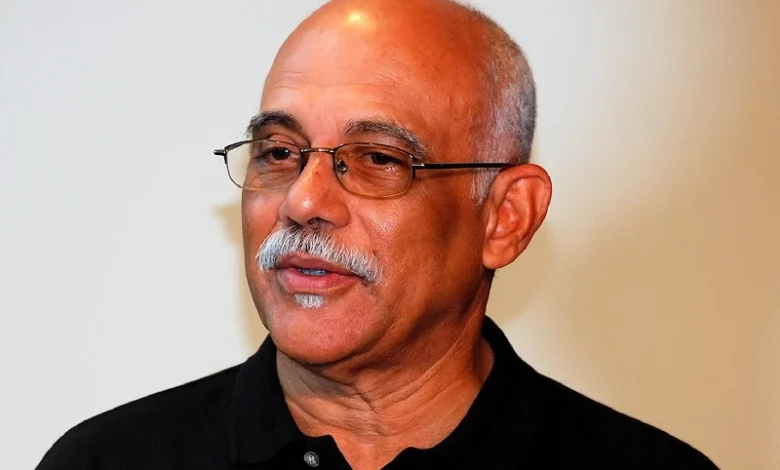Brian Alleyne

Sir Brian George Keith Alleyne, born on 28 April 1943 in Dominica, is a renowned jurist whose career spans law, politics, and human rights advocacy. Son of Keith Alleyne (former Attorney General of the Windward Islands and Grenada), he was educated at Dominica Grammar School before studying law at Gibson & Weldon in England and being called to the Bar of Dominica in January 1967.
Sir Brian Alleyne’s Political and Ministerial Career
Sir Brian Alleyne served as a Senator and Attorney General during the interim government from 1979–1980, before successfully securing the Mahaut Constituency seat in the July 1980 general election. He retained that seat until June 1996, representing the Dominica Freedom Party (DFP). From 1986 to 1990, he held Cabinet posts including Attorney General, Minister for Legal Affairs, and from 1990 to 1995 served as Minister for Foreign Affairs and OECS Unity, under Prime Minister Mary Eugenia Charles. In 1995, he became Political Leader of the DFP and served briefly as Leader of the Opposition until June 1996, a period marked by his leadership during a difficult electoral setback for the party.
Judicial Service and Regional Leadership
In July 1996, Alleyne was appointed as a High Court Judge of the Eastern Caribbean Supreme Court, serving across jurisdictions including Dominica, Grenada, St. Lucia, and St. Vincent & the Grenadines. He was elevated to Justice of Appeal in July 2003 and served as Acting Chief Justice from March 2005 until his enforced retirement on 28 April 2008, his 65th birthday, when Hugh Anthony Rawlins succeeded him. He was conferred the title of Senior Counsel in March 1991 and knighted in July 2007 for his distinguished legal service in the OECS region.
Legal Philosophy and Legacy
Sir Brian is celebrated for his principled decisions and unwavering defense of judicial independence. His landmark jurisprudence includes rulings upheld by the Privy Council in major constitutional cases, for example, in Humphreys v. Attorney General (Antigua & Barbuda) and Trimmingham v. R. (St. Vincent & the Grenadines), where he reinforced fair trial standards and due process under Caribbean constitutional law. His stance often placed him at odds with executive interference; Grenada lawyers publicly lamented the refusal of local authorities to confirm him as Chief Justice in 2007, reflecting his strong sense of principle and self-direction.
Civic Involvement and Human Rights Advocacy
Sir Brian has also distinguished himself as a vocal supporter of civic rights, legal reform, and transparent governance. He served as President and Vice-President within the Dominica Bar Association and the Organization of Commonwealth Caribbean Bar Associations, and was a Director of the Caribbean Human Rights and Legal Aid Company. In 1990 he received the Republic of China’s Order of the Brilliant Star for diplomatic service; in 2005 he received a Meritorious Service Award and in 2014, an honorary doctorate from University of the West Indies. Sir Brian has regularly spoken and written on issues including the erosion of democratic norms, political transparency, LGBT rights legislation, and reforms to judicial independence, even resigning from the Integrity in Public Office Commission in 2011 to uphold ethical accountability.
Personal Life and Family
Sir Brian is married to Brenda McMillian Alleyne of St. Vincent & the Grenadines, and they have three children and six grandchildren. His childhood in a legal family, and early exposure to constitutional debate, helped shape his later engagement as a public intellectual and constitutional scholar. Even after retirement, he has continued to lecture, publish essays, and speak publicly on matters affecting the rule of law in Dominica and the wider Caribbean.
Continuing Influence
Sir Brian Alleyne remains a respected figure in Caribbean jurisprudence and governance. His advocacy for constitutional checks and balances, freedom of expression, fair judicial procedure, and legal professionalism has kept him relevant decades after leaving the bench. Through public commentary and speaking engagements, he continues to influence discussions on legal reform, civic values, and democratic governance, often acting without regard for partisan pressures or personal cost.




